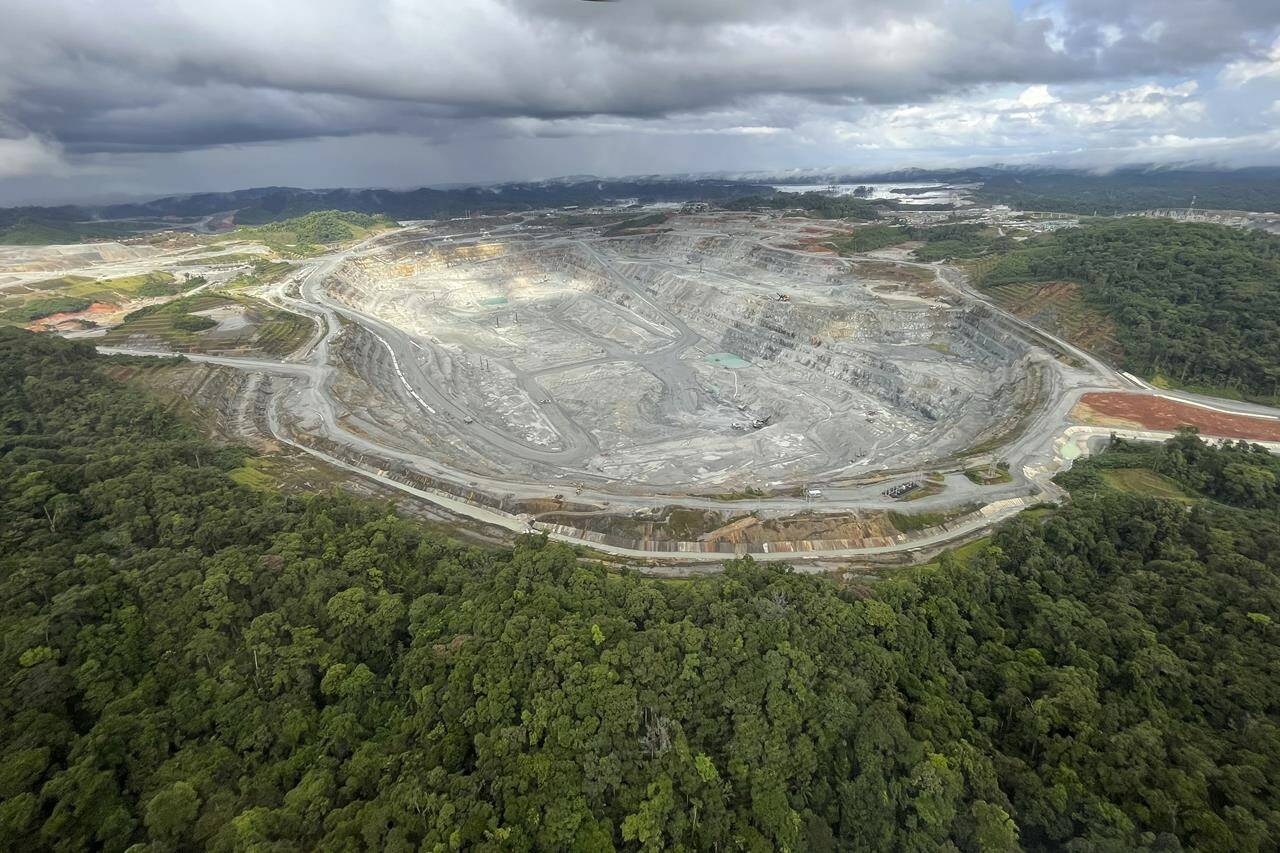Premier David Eby used a recent mining conference platform to tout British Columbia as a safe place for mining.
“I know that in many cases, the requirements that are placed on you by British Columbia, perhaps by Canada, feel onerous, and there are jurisdictions, where you can move faster and it’s cheaper,” Eby said, while speaking at a gathering of the Association for Mineral Exploration. “But I think the First Quantum example in Panama with the Cobre mine is a very good example of the challenges of thinking that you are saving by moving to other jurisdictions.”
According to a report from Bloomberg, Panama’s government ordered the Canadian-owned First Quantum Cobre mine shut down after that country’s highest court ruled its contract unconstitutional. The Cobre mine is part of larger project that includes a port and power station with First Quantum pegging its investment at $10 billion.
Eby said B.C. can provide a level of certainty not found elsewhere.
“Shortly after starting operations, (Cobre) was closed by the Panamanian government,” he said. “That’s not going to happen here. Once you make your investments in British Columbia, then your investments are safe and that mine will continue to operate.”
Eby had made these comments against the backdrop of concerns by the mining industry that the province could be losing out on investments because of high costs caused by regulations and long permitting times.
RELATED: Some dig, others bury first phase of B.C.’s critical minerals strategy
RELATED: ‘Generational’ opportunity for B.C. hangs in balance: mining industry leader
RELATED: B.C.’s critical mineral strategy not competitive enough, industry group says
John Steen, associate professor at UBC’s Norman B. Keevil Institute of Mining Engineering, said cheaper jurisdictions with lower environmental standards come with their own costs.
“The trouble with locating a mine in this environment is that they are politically and socially risky locations,” he said. “These risks are very low in B.C. and give the miners the operating certainty that they need.”
The Ministry of Energy, Mines and Low Carbon Innovation said in a statement that B.C.’s regulatory and operational environment are very different from Panama’s.
“In contrast to other jurisdictions, our environmental, social, and governance ethics have attracted the attention of the investment community, far beyond our borders, positioning us as a world-leading mining jurisdiction,” it reads.
It added that other jurisdictions around the world “do not provide the same stable and predictable structure” that B.C. offers. “Operating in jurisdictions that do not have the same rule of law-based structure is an inherent investment risk,” it reads.
Freedom House, an organization tracking the quality of democratic governance, described as Panama as a “free” society with “competitive elections and orderly rotations of power” in a 2023 report. “However, corruption and impunity are serious challenges, affecting the justice system and the highest levels of government,” it reads. “The country’s judicial system is plagued by corruption and inefficiency,” it adds.
This point also comes through in Panama’s ranking by Transparency International, an organization tracking corruption. It ranks Panama 101st among 180 countries in 2022 on its corruption perception index. Canada, by contrast, ranks 14th.
Panama’s decision to shut down the mine came shortly after that country’s government had extended the company’s mining license in October.
Officials instead proposed to put the proposed mining operations to a local referendum. Panamanian law-makers also pushed to repeal the company’s contract. But neither the referendum nor the proposed repeal went ahead because Panama’s Supreme Court unanimously declared the contract unconstitutional on Nov. 29 following weeks of protests.
The court said in its ruling that the contract violated 25 articles of Panama’s constitution. Those include the right to live in a pollution-free environment, the obligation of the state to protect the health of miners and its commitment to promote the economic and political engagement of Indigenous and rural communities.
First Quantum has since started an arbitration process.
“The (company) will pursue all appropriate legal avenues to protect its investment and rights,” it wrote in a statement on Dec. 22.
Two days earlier First Quantum’s Chief Executive Officer Tristan Pascall told Bloomberg News in a television interview that his company’s commitment toward Panama is “absolute.”
-with files from Associated Press
@wolfgangdepner
wolfgang.depner@blackpress.ca
Like us on Facebook and follow us on Twitter.

